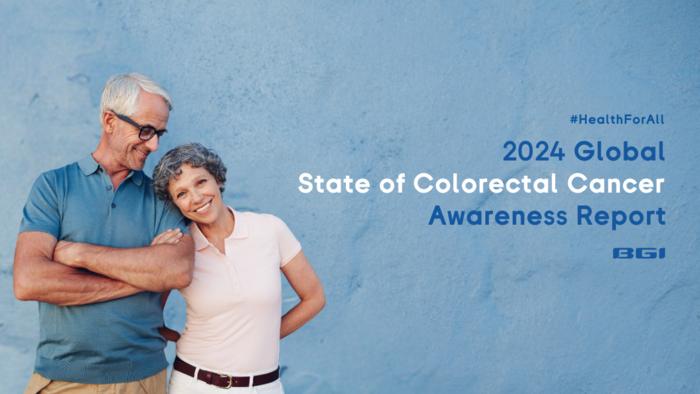
Fear of colonoscopy: Leading barriers in global colorectal cancer screening
According to the WHO, colorectal cancer (CRC) is the third most common cancer worldwide, accounting for approximately 10% of all cancer cases and ranks as the second leading cause of cancer-related deaths worldwide.

Credit: BGI Genomics
According to the WHO, colorectal cancer (CRC) is the third most common cancer worldwide, accounting for approximately 10% of all cancer cases and ranks as the second leading cause of cancer-related deaths worldwide.
By 2040, the burden of CRC is projected to increase to 3.2 million new cases and 1.6 million deaths per year representing a 66% and 71% rise in new cases and deaths respectively relative to 2020.
To better address the global burden of CRC and reduce its impact, BGI Genomics has launched the second edition of its global CRC awareness report, covering 1,938 respondents from Brazil (306), China (367), Poland (300), Saudi Arabia (300), Thailand (362), and Uruguay (303):
CRC Screening Gaps Vary Globally: Nearly half (49.3%) of global respondents have never undergone CRC screening, with the highest proportions in Saudi Arabia (62.0%) and Poland (61.0%). This highlights a significant gap in awareness and accessibility of screening programs, which are crucial in early cancer detection and prevention.
Preference for Fecal Testing Over Colonoscopy: Although colonoscopies are more recognized (33.4%), fecal tests at healthcare facilities are preferred (31.8%), reflecting a trend towards non-invasive methods.
Cost and Fear are Screening Barriers: Fear of colonoscopy (18.2%) and screening costs (17.7%) are major barriers to CRC screening, highlighting the need for affordable, less invasive testing options. In Uruguay, 54.1% prefer inexpensive options, while in China, 68.4% favor moderately priced tests.
Medical Advice and Family History Drive CRC Screening: Doctor’s recommendations are a major driver for CRC screening (30.5% globally), with Uruguay showing the highest adherence (44.1%). Additionally, those with a family history of CRC are more proactive in screening (64.5%), compared to the general population (35.0%). This points to the critical role of healthcare professionals and familial awareness in encouraging screening.
Prof. Varut Lohsiriwat from Mahidol University offers his insights to this report. He suggested: “The essence of effective cancer screening lies in the acceptance and adherence of the patient to the screening method. Doctors can explain the pros and cons of different screening methods within a brief period, usually 3 to 5 minutes. However, the decision ultimately rests with the patient. The best screening method is the one that the patient accepts and adheres to because that’s the method that will actually benefit them.”
Dr. Zhu Shida, BGI Genomics Deputy GM, notes: “While colonoscopy remains the gold standard for colorectal cancer detection, its application is limited by the need for significant medical resources and the time-intensive nature of the procedure. This makes it challenging to reach and benefit a broader range of patients, particularly in resource-constrained settings.”
Dr. Zhu added, “At BGI Genomics, we recognize that there is a gap and we focused our efforts on developing advanced molecular biology testing techniques to close the gap. The ultimate goal is to transform colorectal cancer from a life-threatening disease into a manageable condition through widespread, early screening and intervention.”
For more region-level comparisons, here is the link to access the full BGI Genomics State of CRC Awareness Report 2024.
All data involved in this report come from the results of an online survey project conducted by BGI Genomics. It only surveys awareness related to colorectal cancer and does not involve personally identifiable data.
About BGI Genomics
BGI Genomics, headquartered in Shenzhen, China, is the world’s leading integrated solutions provider of precision medicine. In July 2017, as a subsidiary of BGI Group, BGI Genomics (300676.SZ) was officially listed on the Shenzhen Stock Exchange.
COLOTECT is a non-invasive fecal DNA test developed by BGI Genomics for detecting CRC and precancerous lesions. It uses multiplex methylation-specific PCR (MSP) technology to trace abnormal DNA-methylation biomarkers in CRC from stool samples. It has 88% CRC sensitivity, and for early detection, its sensitivity for advanced adenoma is 46%, which are both superior to conventional fecal tests.